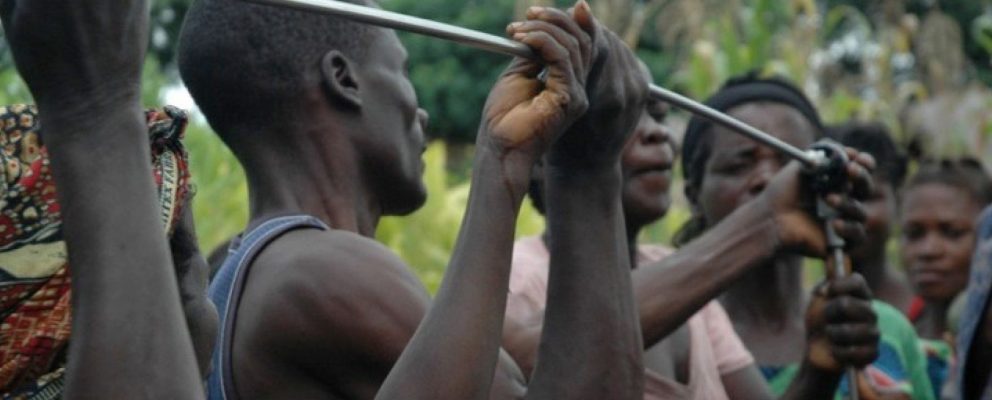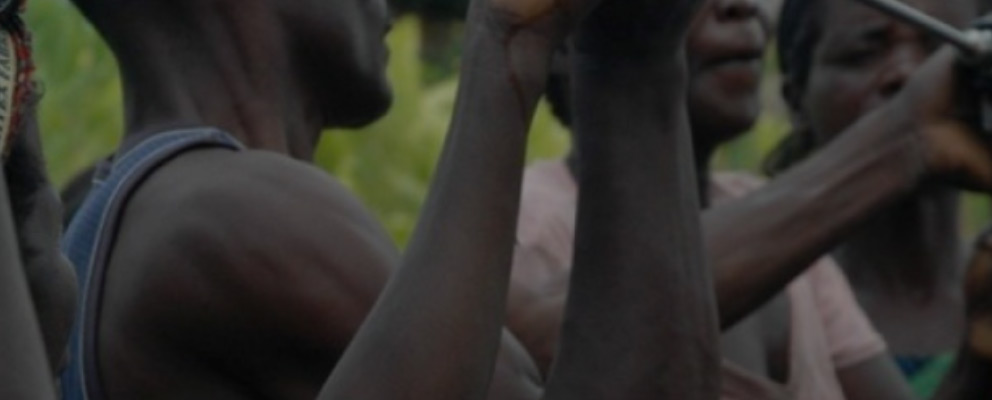WASH Catalysts aims to shift the rural water and sanitation sector away from a series of projectized approaches to a system that is institutionally sustainable.
When someone drills a borehole, it should remain functional.
Building on EWB’s successful Water and Sanitation program in Malawi, the WASH Catalysts venture was launched in 2014 to identify key challenges that can be addressed with strategic catalytic interventions. We aim to help the system move towards a sustainable service delivery support model.
The strategy
WASH Catalysts’ strategy to strengthen the WASH Sector system in Malawi focuses on three main leverage points:
- Help district level governments to use creative approaches to do more within their existing resources through the Tingathe Fellowship Program.
- Work with key actors in the sector to form a coordinated and evidence-based Advocacy Campaign urging the national government to devolve much needed funds for district level water budgets.
- Collaborate with key implementing development partners in the sector through Project Design Consulting, to create strategies which strengthen institutional sustainability of their projects.
Tingathe Fellowship Program
Building on years of experience embedded in government structures, WASH Catalysts created a demand-driven fellowship program for district government water development offices (DWDOs). We work to encourage creative use of their existing operational funds, helping them to reach service delivery goals outside of project-supported contexts. The Tingathe Program aims to:
- Dispel the prevailing notion that without more money there is no way to move forward towards meeting their service support delivery goals by helping DWDOs to maximize their maintenance output within their existing resources.
- Help DWDOs leverage local stakeholder relationships to utilize their roles in a way that maximizes the efficiency of the system.
- Create a platform for knowledge sharing among districts so they can address common challenges by learning about, and building on, each other’s creative strategies.
- Generate a critical mass of innovators among district government leaders to lead and influence their peers in the sector, thereby creating an environment that fosters creative problem solving tactics.
“The Tingathe Fellowship Program has helped to build the confidence of those involved. It has created a platform where we can share and learn together.” — Phideria Moyo, Southern Region Irrigation and Water Development Officer
Advocacy
There is a clear and urgent need to allocate more resources to district level governments to bridge the gap between their responsibilities and their funding. The advocacy strategy aims to:
- Create a clear evidence base for the urgent need to devolve funding.
- Coordinate the NGOs in the WASH sector to get behind a coherent and united advocacy strategy.
- Strengthen and support the influential actors to effectively lead as a united advocacy voice for the sector.
- Identify practical pathways for the relevant ministries to reach resource devolution while recognizing broader resource constraints.
Project Design Consulting
WASH Catalysts partners with organizations interested in designing and transitioning their projects in ways that foster institutional sustainability. We provide tailored consulting focused on building practical capacities needed by stakeholders to sustain project outcomes. The aim of the consulting portfolio is to:
- Help organizations to ensure the institutional sustainability of their project results through consulting, which is rooted in a deep understanding of the Malawi context, excellent sectoral and governmental relationships, and a wealth of good practices and lessons learned based on our experience.
- Demonstrate the pitfalls of a projectized approach to implementing organizations, and highlight key considerations which can significantly improve the sustainability of development gains.
- Assist local government and communities by helping them to leverage available project resources and time to gain not only infrastructure development, but also to strengthen local institutions and systems.
- Encourage implementing organizations to adopt good project design practices related to institutional sustainability, across their national and international development programs.
“We want to be able to look at a functional water point in 20 years and say, ‘That was built in 2003.'” Lovemore Mvula, WaterAid
Key achievements from WASH Catalysts
Strengthening service delivery through low-cost approaches
WASH Catalysts ran a three-year Tingathe Fellowship program to generate low-cost creative approaches to strengthen local government’s ability to support WASH service delivery in Malawi. Fifty percent of the districts in Malawi were inducted over this period. This unique program asked district governments to design new approaches within existing budget constraints, and provided embedded support to pilot, implement and scale them without extra funding.
We created an effective space for motivated leaders to learn from each other, and we’ve seen districts adopt promising ideas from their peers. We also observed that districts are taking a more active role in pressing for change in the way they deliver rural water services, towards sustainable programs that can continue without the need for outside support.
“The solutions are from within; we are unlocking ideas from our own community.” — Peter Chipeta, Central Region Irrigation and Water Development Officer
Developing more sustainable project design amongst NGOs
We successfully facilitated a two-year transition strategy for WaterAid Malawi out of one of its longstanding projects in Salima district. We developed and executed a process that examined the post-project context of the district, and worked directly with local government officers and extension workers as well as community groups to build the management skills and behaviours needed to sustain service delivery.
At the closing workshop in March 2017, local government participants stated that because of this work they now have a better understanding of how their particular job can prevent loss of services after projects leave. At the end of the two-year period, we produced recommendations to WaterAid Malawi on how to conduct effective transition phases and to design future projects in ways which strengthen institutional sustainability.

